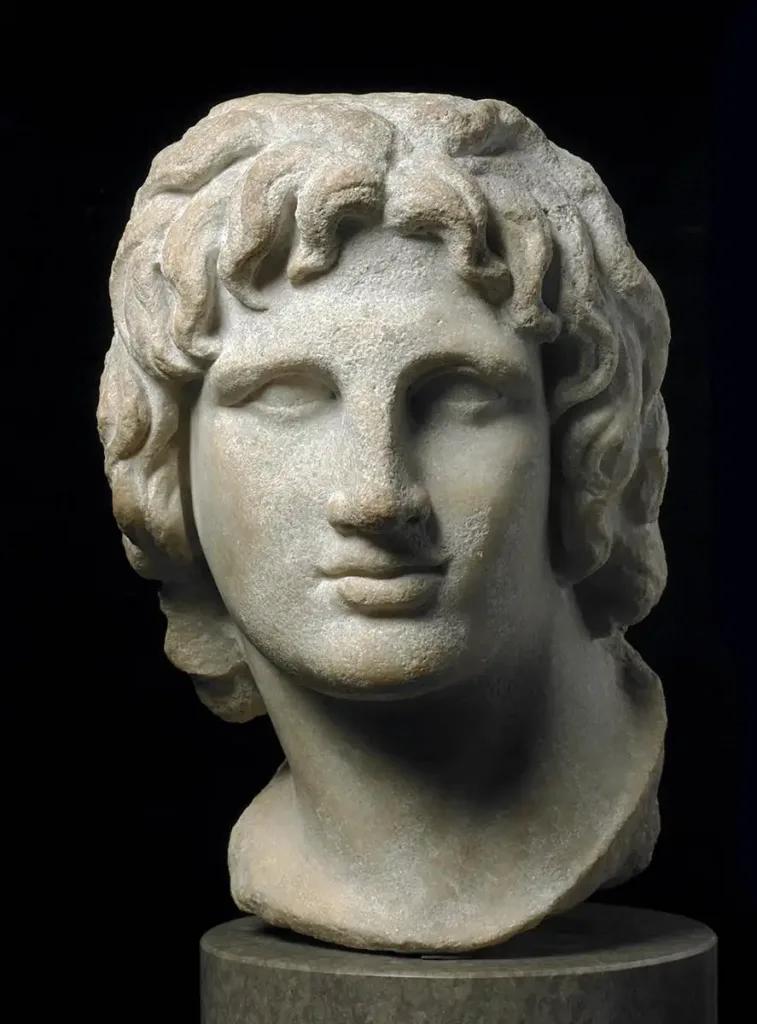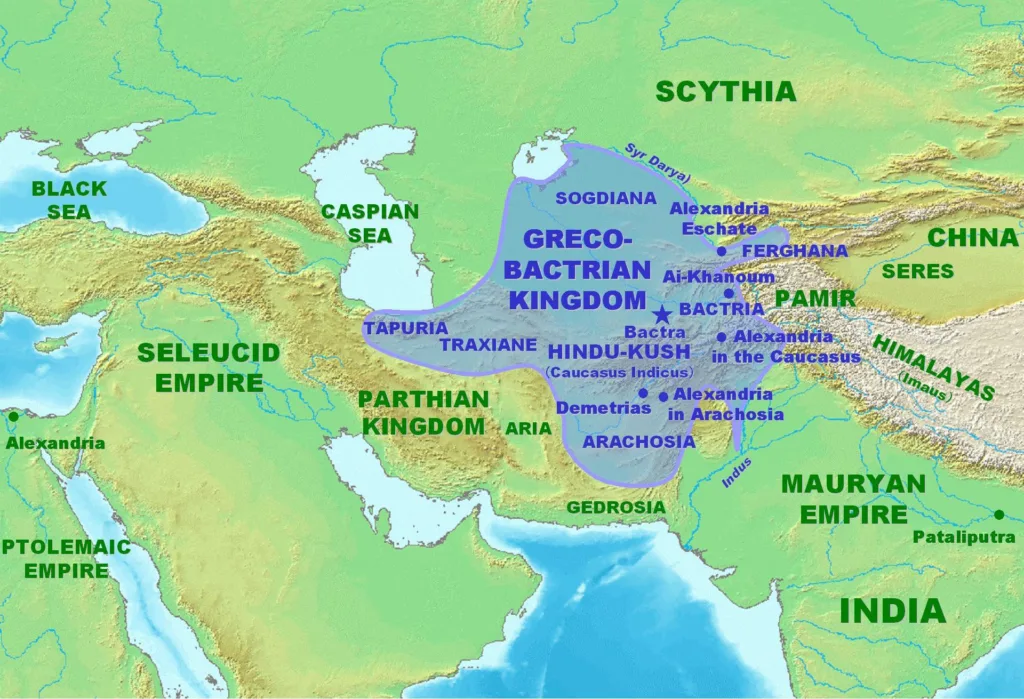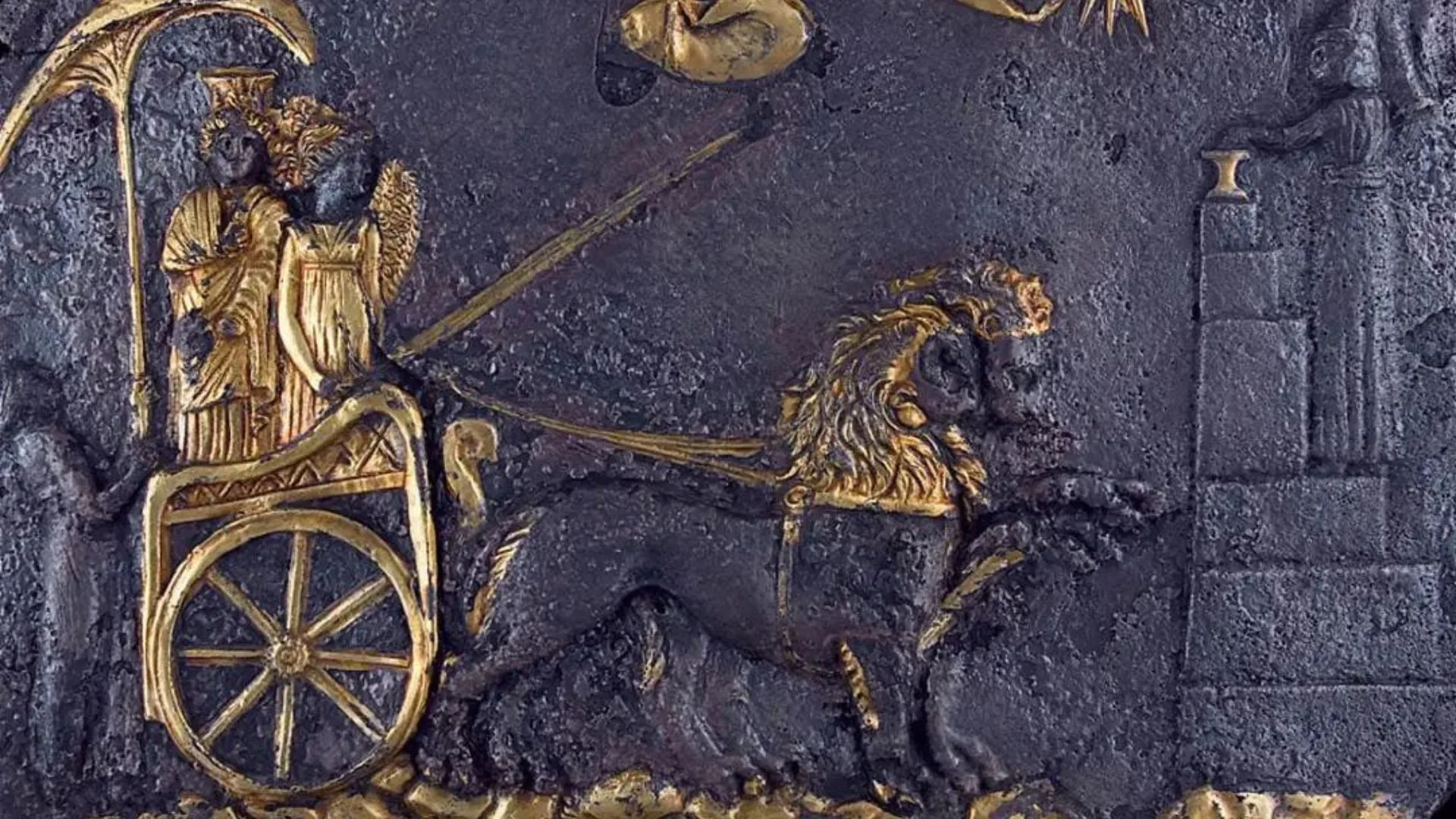By Billy Cotsis*
If you were alive in the fourth century BC, you would have noticed a large number of Hellenic Kingdoms emerged after the death of Alexander the Great. One of the most unique includes the Greeks of India, which today is a cricket mad nation with a rich cultural identity.
The Indo-Greek Kingdom is arguably the most fascinating of all the Hellenistic Kingdoms, initially emerging from the Greek-Bactrian Kingdom (Afghanistan). The Greeks of Bactria fought each other until the kingdom finally ceased to exist. However, in India, by 100 BC a Greek kingdom emerged, of which the most important Indo-Greek king was Menander, known locally as Milinda. He converted to Buddhism, and encouraged arts and sciences, resulting in a very unique artistic style that is still evident in India today.
Let us take a step or two back. In 250BC, the satrap (Persian for local ruler) of Bactria, Diodotos, seceded from the Greek Seleucid Empire, which covered the territory from Syria towards the Far East. It did not hurt that the Seleucid Empire itself was born out of war amongst the Diadochi, the generals of Alexander; it seems ingrained in Greek DNA that they would fight their own kind or look to better themselves by breaking free. In this case, Diodotos declared himself king and lasted for as long as his successor and son could hold out the usurper Euthydemos; he nearly lost his new kingdom as the Seleucids came to Bactria, besieged him for two years before retreating. Being a usurper, you will always have a target placed on you, and it was that way in 145BC when he was killed by his own son!
This lack of respect for the title of king and internal instability was more than enough for many tribes to migrate to southern Bactria. More tribes migrated from China (Kushans), until the warrior Sakas brought an end to the Indo – Bactrian era with his sword.
Menander, 155-130BC, conquered much of northern India. He became one of the most revered figures of Buddhism. It should be noted that the Bactrians had already conquered the Punjab, which began many years of ongoing conquest from 190BC.

This Kingdom is one that embraced Hellenism, and like most of the East, had drawn upon tens of thousands of Greek colonists and military personnel. At its height, it had territory to rival Parthia, although not quite as big. The boundaries went from the Caspian Sea to the Himalayas. The independent kingdom including neighbouring Sodgiana, had dozens of settlements named after Alexander or other Hellenic rulers.
Like all the Hellenic successor kingdoms, the official language was Greek, with a strong preference for Greek customs, culture and religion, which blended with local elements of the same. This merging of cultures was a unique way of keeping the population on side.
Euthydemus ventured as far as Xinjiang, in China during 220BC or thereabouts, possibly the first known contact with China by Europeans or Hellenes.
In China, excavations have uncovered small relics owned by Greek soldiers, and Hellenic themed designs appeared on Chinese bronze mirrors. Greek kings soon adopted Chinese copper for their coinage.
The structure of government in Bactria included a series of provinces ruled by the Satrapies, an inheritance from Persia and maintained by Alexander. Supplementing that was the settlements and small cities based on the polis, governed by a Council and Assembly. The Assembly would meet every month.
Incredibly, each Assembly ensured that a gymnasium, playgrounds, theatres, and other public gathering spaces were established. Finally, an elected Council leader and Treasurer formed the executive.
The Bactrian Empire, unlike many of the Hellenic empires founded during this epoch, had a swift ending. The Parthians had grown in strength and by 141 had taken most of Bactria. The final ruler of the Hellenistic Bactria was Heliocles, who was killed fighting nomads in 130.
This brings a close to the Bactrian empire. Across the marshes and mountain plains we can return to Menander, one of the most intriguing figures in Hellenic history. Menander was probably born a commoner in a village outside a city named after Alexander. It’s not often someone can truly fuse religions. I know the Hellenes had been achieving that by merging Greek Gods and say Egyptian or Persian Gods. The key difference here is the Buddhist element.
He came to prominence as a king in Bactria. However, upon conquering the Punjab he essentially developed a rival empire. Unlike Bactria, the new empire was contained in the confines of the Indian sub continent. Menander was the only Hellenic king outside of Alexander that survived within Indian accounts/stories of the era and remains part of literature from the region. He became besotted with Indian culture, quickly adopting Buddhism. The heads of the religion were, apparently, the converted Greek Buddhist monks!
The coinage issued by the king, like all the Hellenic coinage issued in India, contained Greek writing on one side and a local language on the flip side. His reign seemed to produce the highest number of coinage found from Greek rule, indicating that commercially it was a wealthy empire.
Excavations bring to us Buddhist figurines with Hellenic patterns and features.
Menander conquered as far east to include the rivers Ganga and Arennovoas; he was without doubt the most important of the 36 Indian Greek or Greek style rulers of the region, including the Bactrian rulers. The coins uncovered from excavations bring us information on each king.
The Greek rulers had centuries of sophisticated warfare techniques to draw upon, and had also mastered the art of fighting with and against elephants, which were a feature of warfare in India. The other advantage Greek rulers had, they were able to draw upon the concept of Hellenism linking them across most of the known world, whereas the tribes and forces that fought against them were generally loyal to their local region. The Greeks, despite a myriad of civil wars, could muster forces externally for the common cause of Hellenism.
Unfortunately, an absence of literature means that after Agothocles, there is limited information on other Greek rulers. The coinage helps to place them chronologically.

What we do know is that the rulers were generally benign, and respectful of local customs. The well adored Menander was succeeded by his wife, Agathoclea, in 125 and by about 100BC the Kingdom was confined to the Northwest of modern India. Philoxenus was able to keep the Kingdom under control for a while, alas as is continually the case with Hellenes, the final decades resulted in a number of civil wars amongst the Greek rulers. The result was a weakening of their grip on the region. Heliokles II, StratoI and Hermaeus were some of those responsible for the fighting, as the kingdom effectively divided in two.
The Yuezhi nomadic people invaded, capturing Paropamisadae by 70BC around whilst the Scythian tribes, starting with King Maues, had invaded from 80BC and taken significant territory from the Greeks.
Somewhat of a fight back occurred under a descendent of Meander, Apollodotus II, who recaptured most of eastern Punjab and Ganhara. In the West, Hippostratos was the last ruler of that region, being overthrown by the Scythians in 50BC. Interestingly, they maintained the Greek coinage and paid due respect to Indian and Greek culture.
The last Hellene to rule was Strato II in the east around Sagala until 10 AD when the Scythian Rajuvula defeated him. This was the end of the Hellenistic realms that existed after Alexander. The next time a true Greek Kingdom would emerge, would be the Byzantine Empire, which of course has some debate over when it became ‘Greek.’
Having said that, there may have been a Greek ruler called Theodamas in Bajaur, modern Pakistan, around 100 AD, though there is little known about him and it would likely have been as a satellite ruler for Scythia.
In addition to a Greco Buddhism aspect of the Kingdom, there were a number of Greek cities founded or enhanced, including Alexandropolis, Biyt, Pharsana, Chorochoad, Demetrias, Arachosia, Taxila, Alexandria Bucephalus.
Across these cities and others, Greek culture and language survived possibly to the 200s AD as a minority.
In 120 AD there was an edict issued by the ruler Kanishka in Greek. This is verified by Professor Nicholas Sims-Williams from the University of London.
Greek inscriptions on coinage remains are found on many coins. In the late 290s there are finds from Kshatrapa with what appears to be a version of Greek text, and again around 415AD. Numerous other areas of Punjab especially those that came under the Scythians maintained Greek writing on coinage. Incredibly, there have been finds of Greek script in 850 in Kabul.
Hellenistic kingdoms knew no bounds, just like the cricketers of modern India hitting sixers, Hellenism certainly found its way to boundaries especially India.
*Billy Cotsis is the author of The Aegean Seven Take Back The Stolen Marbles
